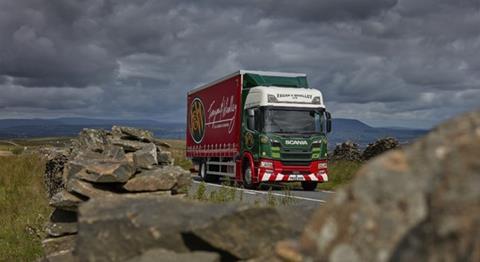For this week’s commentary we’ve turned to an operator at the front line of the UK road freight logistics supply chain, Fagan & Whalley, for its insights into why a focus on sustainable logistics is driving its service development.

The phrase on everyone’s lips is: sustainable logistics. And if it isn’t – it should be! Now more than ever, consumers, investors and employees across various sectors are increasingly demanding that companies play a greater role in accelerating the transition to sustainable business practices.
What is sustainability in logistics?
At its core, sustainable logistics encompasses adopting eco-friendly and efficient practices across the entire supply chain. Essentially, it’s about the steps a logistics provider takes to lessen their environmental footprint. This includes a holistic approach to this goal, including factors such as vehicle efficiency and alternative fuels, optimised routing and reduced empty-running, to lighting and recycling practices.
Why you shouldn’t ignore sustainable logistics in 2024:
1. Sustainable logistics supports your own environmental compliance
Firstly, partnering with a sustainable logistics provider offers a straightforward path to complying with environmental regulations. This becomes particularly relevant in July 2024 with the introduction of the UK’s Sustainability Disclosure Requirements (SDR).
The SDR is a regime designed to disclose how businesses manage their sustainability-related risks and opportunities. The focus is on providing useful information to investors, consumers and other stakeholders to help them make informed decisions when choosing which businesses to work with.
Essentially, this means that there will be nowhere to hide for businesses that are intentionally choosing to turn a blind eye to green logistics. By partnering with a sustainable logistics company, you’re not only aligning with these upcoming green regulations – but are demonstrating a proactive approach and commitment to green initiatives in general.
This commitment becomes increasingly important as the SDR puts a spotlight on business’s sustainability efforts, making it more challenging for those who neglect green logistics to go unnoticed.
2. Sustainable logistics helps to entice the next generation of talent
Secondly, sustainable logistics are increasingly becoming a key factor in attracting the next generation of talent. Today’s youth, particularly Gen Z, reportedly face heightened social awareness and concern for the planet’s future, often experiencing what’s known as ‘eco-anxiety’. This is unsurprising when we consider that they are likely to face the effects of climate change more than any preceding generation.
In light of this, a report by Bupa reveals that a significant majority of young adults aged 18-22 emphasise the importance of their employers taking action on environmental issues.
Likewise, findings from Deloitte found that a staggering 77% of Gen Z respondents prioritise working for organisations that align with their values. Not only this, but reports also indicate that this generation is more willing to decline job offers and higher salaries to work with companies that align with their ethical and environmental standards.
This shift in workplace expectations demonstrates the importance of adopting green practices, such as sustainable logistics. Companies that integrate these practices are not only contributing to environmental sustainability but are also positioning themselves as desirable employers for the environmentally conscious younger workforce.
And after all, who wouldn’t want to attract top emerging industry talent?
3. Sustainability in logistics protects you against accusations of ‘greenwashing’
While many businesses will recognise the commercial or superficial benefits of ‘going green’ for the planet – these efforts do come with a caveat. Despite consumers clearly wanting more sustainable efforts from brands – they are also wary of false promises and ‘greenwashing’.
Greenwashing refers to the practice of companies misleading or making unsupported claims about the environmental benefits of their products, services and practices. In this day and age, consumers are becoming increasingly vigilant about greenwashing and can be hard to avoid unless your company really is ‘walking the walk’ and not just ‘talking the talk’. Because of this, greenwashing is an all-too-common way for a company to erode their consumer trust and damage their brand’s reputation.
Instead, by adopting genuine sustainable logistics practices and working with a specialist logistics partner, businesses can protect themselves from such accusations. This also helps businesses demonstrate their commitment to environmental stewardship and builds long-term trust and credibility.
To achieve a sustainable supply chain, it’s imperative to embrace a multi-faceted approach that combines eco-efficiency with innovation and ethical practices.
Begin by assessing your current supply chain operations to identify areas where sustainability can be enhanced. It’s advisable to forge partnerships with suppliers who share a commitment to sustainability. These relationships can lead to shared learning and innovation in sustainable practices, ensuring that every link in your supply chain contributes positively to your environmental goals.
Special thanks to the team at Fagan & Whalley for contributing this article.















No comments yet